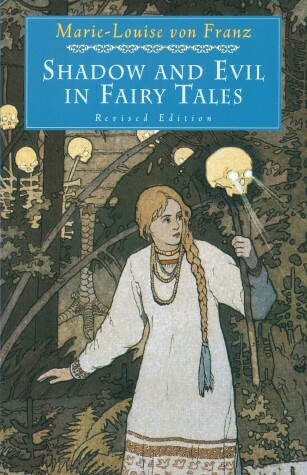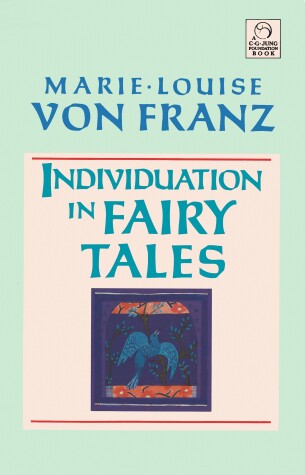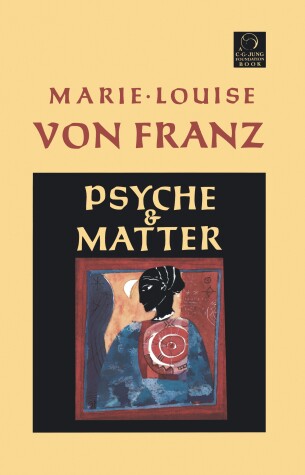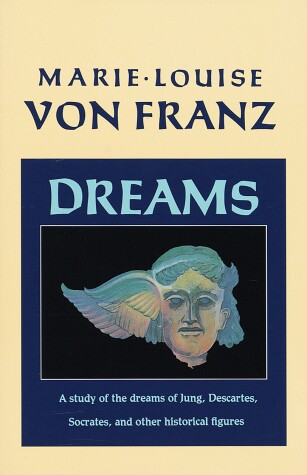C. G. Jung Foundation Books
5 primary works
Book 1
A renowned psychologist examines fairy tales through a Jungian lens, revealing what they can teach us about the darkest sides of human behavior
Fairy tales seem to be innocent stories, yet they contain profound lessons for those who would dive deep into their waters of meaning. In this book, Marie-Louise von Franz uncovers some of the important lessons concealed in tales from around the world, drawing on the wealth of her knowledge of folklore, her experience as a psychoanalyst and a collaborator with Jung, and her great personal wisdom. Among the many topics discussed in relation to the dark side of life and human psychology, both individual and collective, are:
• How different aspects of the “shadow”—all the affects and attitudes that are unconscious to the ego personality—are personified in the giants and monsters, ghosts, and demons, evil kings, and wicked witches of fairy tales
• How problems of the shadow manifest differently in men and women
• What fairy tales say about the kinds of behavior and attitudes that invite evil
• How Jung’s technique of Active imagination can be used to overcome overwhelming negative emotions
• How ghost stories and superstitions reflect the psychology of grieving
• What fairy tales advise us about whether to struggle against evil or turn the other cheek
Dr. von Franz concludes that every rule of behavior that we can learn from the unconscious through fairy tales and dreams is usually a paradox: sometimes there must be a physical struggle against evil and sometimes a contest of wits, sometimes a display of strength or magic and sometimes a retreat. Above all, she shows the importance of relying on the central, authentic core of our being—the innermost Self, which is beyond the struggle between the opposites of good and evil.
Fairy tales seem to be innocent stories, yet they contain profound lessons for those who would dive deep into their waters of meaning. In this book, Marie-Louise von Franz uncovers some of the important lessons concealed in tales from around the world, drawing on the wealth of her knowledge of folklore, her experience as a psychoanalyst and a collaborator with Jung, and her great personal wisdom. Among the many topics discussed in relation to the dark side of life and human psychology, both individual and collective, are:
• How different aspects of the “shadow”—all the affects and attitudes that are unconscious to the ego personality—are personified in the giants and monsters, ghosts, and demons, evil kings, and wicked witches of fairy tales
• How problems of the shadow manifest differently in men and women
• What fairy tales say about the kinds of behavior and attitudes that invite evil
• How Jung’s technique of Active imagination can be used to overcome overwhelming negative emotions
• How ghost stories and superstitions reflect the psychology of grieving
• What fairy tales advise us about whether to struggle against evil or turn the other cheek
Dr. von Franz concludes that every rule of behavior that we can learn from the unconscious through fairy tales and dreams is usually a paradox: sometimes there must be a physical struggle against evil and sometimes a contest of wits, sometimes a display of strength or magic and sometimes a retreat. Above all, she shows the importance of relying on the central, authentic core of our being—the innermost Self, which is beyond the struggle between the opposites of good and evil.
Book 3
With a text revised and corrected by the author, this definitive edition of Individuation in Fairy Tales is rich with insights from religion, literature, and myth. Dr. von Franz focuses on the symbolism of the bird motif in six fairy tales of Europe and Asia: "The White Parrot" (Spain), "The Bath Bagerd" (Persia), "Princess Hassan Pasha" (Turkestan), "The Bid Flower Triller" (Iran), "The Nightingale Giser" (Balkans), and "The Bird Wehmus" (Austria). She explores the themes of psychological and spiritual transformation in the varied images of birds, such as the phoenix, the parrot, and the griffin. Special attention is given to the connection between fairy tales and alchemy and to the guidance that fairy tales give to therapeutic work.
Book 6
Twelve essays by the distinguished analyst Marie-Louise von Franz—five of them appearing in English for the first time—discuss synchronicity, number and time, and contemporary areas of rapprochement between the natural sciences and analytical psychology with regard to the relationship between mind and matter. This last question is among the most crucial today for fields as varied as microphysics, psychosomatic medicine, biology, quantum physics, and depth psychology.
Book 9
“Carl Jung’s must important . . . disciple” offers a fascinating dive into the nature of dreams—revealing what they can teach us about ourselves, others, and even history (Rolling Stone)
These collected essays by the distinguished psychoanalyst Marie-Louise von Franz offer fascinating insights into the study of dreams, not only psychologically, but also from historical, religious, and philosophical points of view. In the first two chapters, the author offers general explanations of the nature of dreams and their use in analysis. She examines how dreams can be used in the development of self-knowledge and describes how C. G. Jung worked with his own dreams, and the fateful ways in which they were entwined with the course of his life.
The rest of the book records and interprets dreams of historical personages: Socrates, Descartes, Themistocles and Hannibal, and the mothers of Saint Augustine, Saint Bernard of Clairvaux, and Saint Dominic. Connections are revealed between the personal and family histories of the dreamers and individual and collective mores of their times. Dreams includes writings long out of print or never-before-available in English translation.
These collected essays by the distinguished psychoanalyst Marie-Louise von Franz offer fascinating insights into the study of dreams, not only psychologically, but also from historical, religious, and philosophical points of view. In the first two chapters, the author offers general explanations of the nature of dreams and their use in analysis. She examines how dreams can be used in the development of self-knowledge and describes how C. G. Jung worked with his own dreams, and the fateful ways in which they were entwined with the course of his life.
The rest of the book records and interprets dreams of historical personages: Socrates, Descartes, Themistocles and Hannibal, and the mothers of Saint Augustine, Saint Bernard of Clairvaux, and Saint Dominic. Connections are revealed between the personal and family histories of the dreamers and individual and collective mores of their times. Dreams includes writings long out of print or never-before-available in English translation.
Book 11
"Today there is much discussion of the liberation of women," writes Marie-Louise von Franz, "but it is sometimes overlooked that this can only succeed if there is a change in men as well. Just as women have to overcome the patriarchal tyrant in their own souls, men have to liberate and differentiate their inner femininity. Only then will a better relationship of the sexes be possible." It is this timely theme that Dr. von Franz explores in her psychological study of a classic work of the second century, The Golden Ass by Apuleius of Madaura. The novel recounts the adventures of a young Roman who is transformed into an ass and eventually finds spiritual renewal through initiation into the Isis mysteries. With its many tales within a tale (including the celebrated story of Psyche and Eros), the text as interpreted by Dr. von Franz is a rich source of insights, anecdotes, and scholarly amplification.




